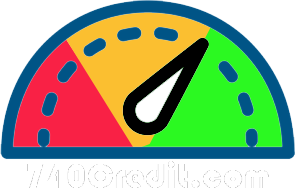What Happens if You Can’t Pay Your Debts?

Finding yourself unable to pay off a lot of debt can be one of life’s more stressful situations, especially with inflation making everything more expensive. Maybe you have aging parents with expensive needs or a roommate who isn’t paying their fair share. Maybe your kid hopes you’ll shell out some money for a Taylor Swift concert. It’s always tricky to balance life’s current expenses with past expenses –continually spending money while wrestling with a past debt.
How worried should you be if you can’t pay off a debt easily? It depends on whether the debt you’re behind on is your mortgage (that can be very bad) or your credit cards (not quite as bad). In these sorts of cases, it’s useful to understand the differences between secured and unsecured debt.
Secured debt is a type of debt where there is an asset attached to it. If you fall behind on secured debts, you can lose those assets, like your house or car. Should you fall behind on unsecured debts, like student loans and medical bills, it’s arguably far less of a serious.
If you owe money, just remember that the outcome that you’re imagining is probably worse than the reality. Still, it’s always helpful to know what lies ahead. What happens if you don’t pay debt? Here’s what you can expect:
- Your debt will go to a collection agency.
- Debt collectors will contact you.
- Your credit history and score will be affected.
- Your debt will probably haunt you for years.
- You’ll pay off the debt or not, but life will go on.
Your Debt Will Go to a Collection Agency
Let’s tackle this scenario first. Fortunately, it won’t happen right away.
“If you are more than 30 days late on a payment, your creditor will most likely contact you by phone, letter, or email,” says Lyle Solomon, a consumer finance attorney and a principal attorney for the Oak View Law Group in Auburn, California.
“Lenders frequently raise your interest rate when you begin to default on your payments after 60 days,” Solomon says. “If you miss a third payment, your account will most likely be closed, and you will be required to pay the entire balance. The majority of creditors will sell your debt to a collection agency.”
Under federal law, a credit can send your account to a collection agency after it’s 31 days past due. Still, that isn’t likely to happen. As Solomon says, that usually doesn’t happen until about the second or third month.
The debt collection agency has been hired by the company that’s owed the money. If you pay the debt collector, that money will make its way back to the entity that is owed the money. The debt collector will first take a sizable commission, often between 25% and 45%.
Sometimes, debt collectors who have been holding debt for a while with no luck getting any money back will sell the debt that they bought to another debt collector that feels more optimistic that it will have more luck convincing you to pay up. In any case, if a debt collector owns the debt you owe, it will seek you out.
Debt Collectors Will Contact You
The phone will start ringing, and the letters will start coming in a campaign to get you to pay. If you’re able to pay the debt or negotiate with the debt collector, then your debt problem will rather quickly disappear. If you can’t, you may find your stress levels rising – especially if you have secured debt.
You may received threats of your house being foreclosed on if you are a homeowner. Should you own a car, you may be getting letters or calls telling you that your vehicle will be repossessed. You don’t want to ignore these calls. If it’s your house or car that’s in danger, you really should try to work out whatever payment plan you can so you don’t lose them.
Adding insult to injury, if you have a car, you could find yourself with a vehicle that has been towed. You could still owe money on it, if the value is less than the amount of money that you owe.
Your Credit History and Score Will Be Negatively Impacted
This is probably no surprise to you. Once your debt goes into collection – your credit score begins to take a lot of hits.
“Debt collectors report accounts to credit bureaus, which can have a long-term impact on your credit score,” Solomon says. “Late payments and subsequent charge-offs, which typically precede a collection account, will have already harmed your credit score by the time the collection occurs.”
How much can you expect to see your credit score drop? Typically, one missed payment can make an excellent credit score plunge by 100 points. If your credit score was shaky to begin with, or already in pitiful shape, it won’t do as much damage. It’s really impossible to say by how much it’ll go down, but it will go down.
Medical debt, has recently changed in terms of how it’s treated when it reaches collections.
After a Consumer Financial Protection Bureau report came out in March 2022 showing that medical bills were the most likely item to be on somebody’s credit report, and were showing up on 43 million credit reports, the three main credit bureaus, Equifax, Experian and TransUnion, issued a joint statement announcing that starting July 1, 2022, unpaid bills will be reported only if they have remained unpaid for at least 12 months – and starting in July 2023, if a medical bill under $500 goes into collection, it won’t even be put on a credit report.
Your Debt May Haunt You for Years
What happens if you never pay collections? Maybe nothing.
Now, keep in mind that there is a big difference between, say, a $70 debt and a $7,000 debt. It may be that an unpaid debt of $70 doesn’t haunt you at all or cause you much grief. You don’t pay it, and other than your credit score going down for a while, maybe nothing happens other than a few dozen phone calls, which eventually stop coming.
But there’s no guarantee of that. You could be sued over a $70 debt or a $7 debt. It just isn’t likely. You are not likely to have a $7,000 debt, though, without getting some grief from your creditor.
If you are late with a debt payment, at some point you could be sued.
Once sued, you tend to have around 20 days (sometimes less) to 30 days to respond. If you don’t show up, of course, you automatically lose the case.
If you lose the lawsuit, your wages will be garnished at 25% out of every paycheck. A lien can also be put on your home or car. It’s also worth noting that you might have your wages garnished for less than 25% – but it won’t be more. Federal law generally limits it to 25%.
None of this helps your credit score. Keep in mind that debts can linger and even cause trouble for descendants after a person dies. For instance, if you die with unpaid debt and you also leave behind an inheritance for your family, those debts might have to be paid off before your heirs can enjoy the fruits of your labor.
You’ll Either Pay Off the Debt or Not, but Life Will Go On
Just remember that at some point things will work out: You will pay off what you owe and find debt relief, or time will pass and you won’t pay off your debts. There is a statute of limitations on credit card debt, for instance. It varies by state, but it’s generally three to 10 years.
But it’s important to understand something about statute of limitations, according to Solomon.
“After the statute of limitations has expired, a debt collector may not file or threaten to file a lawsuit. But you technically still owe the money,” Solomon says. “Statutes of limitations limit the amount of time collectors have to file lawsuits. As long as they do not break the law, they can send you letters or call you to try to get you to settle the debt.”
So a debt collector could, in theory, pursue you until the end of time. Assuming you, at this point, have zero interest in paying off this long-ago debt, Solomon has a warning: “In this case, you must not do or say anything that could extend or waive the statute of limitations. Accepting a settlement offer, making a payment on the debt, or acknowledging that you owe the debt are all actions that could reset the statute of limitations.”
That means you could be legally liable for that old debt, once again.
One way or another, things will be resolved between you and your unpaid debts. Yes, it’s scary to be on the hook for money that you owe, especially if debt collectors are hounding you and the threat of a lawsuit is out there, but it’s not likely that you’ll go to jail. Unless, perhaps, your debts are for tax evasion or failing to pay child support.
Simon Goldenberg, a New York City attorney who specializes in debt relief, offers three types of scenarios that you can expect. Generally, it all depends on the lender and the amount of money you’re behind on, in terms of what outcome will be likely.
Best-case scenario. “The debt becomes time-barred and falls off the consumer’s credit report. The creditor has limited remedies for collection. The consumer no longer has a fear of being sued or having their credit damaged,” Goldenberg says.
Middle-ground scenario. “The consumer reaches an affordable settlement on their debt that allows them to satisfy the balance at a reduced amount and in payments that are structured to match their budget. That way the consumer can eliminate the fear of potential litigation and will end all further collection efforts on the account,” Goldenberg says.
If you do end up opting for a middle ground, that could mean working with a debt relief attorney to negotiate debts or declaring bankruptcy – or working with a credit counseling service accredited through an organization like the National Foundation for Credit Counseling or the Financial Counseling Association of America. Credit counseling nonprofits can get those debt collector calls to stop and are generally pretty successful with helping people manage and settle debts.
Worst-case scenario. “A lawsuit is brought, and the creditor obtains a judgment. In New York, a judgment is effective for 20 years and accrues 9% interest annually. It can be collected through wage garnishment, asset seizure such as a restraint on bank accounts, and by placing a lien against the consumer’s real property.”
Keep in mind that the worst-case scenarios tend to happen to the consumers who avoid the calls and letters from debt collectors and do nothing to work on the financial problem until it becomes impossible to look away. As long as you try to fix your debt problems, you’re almost certainly going to eventually fix them.

-1.gif)


